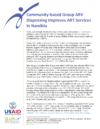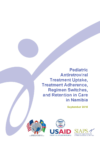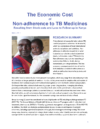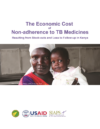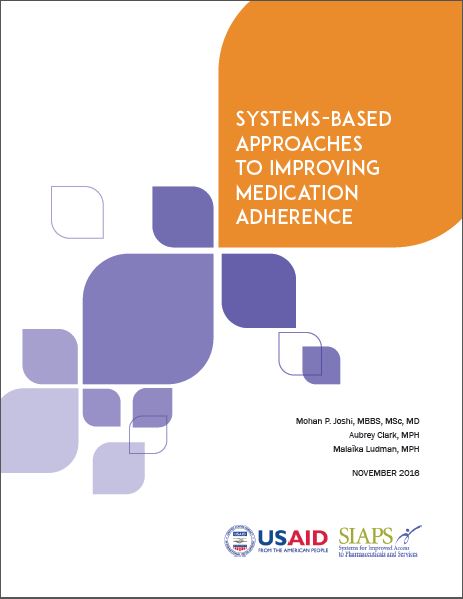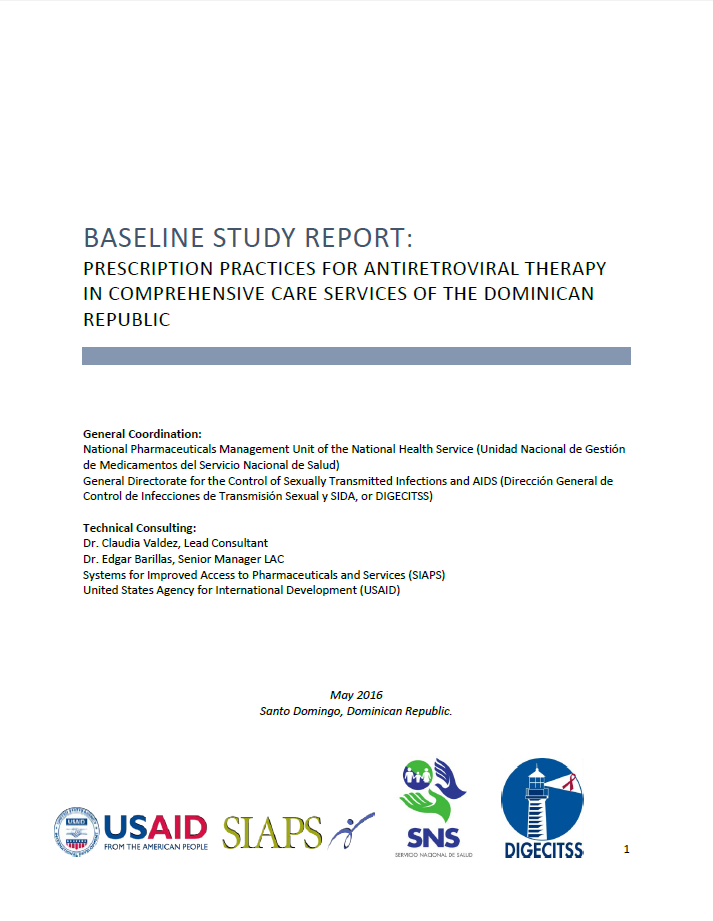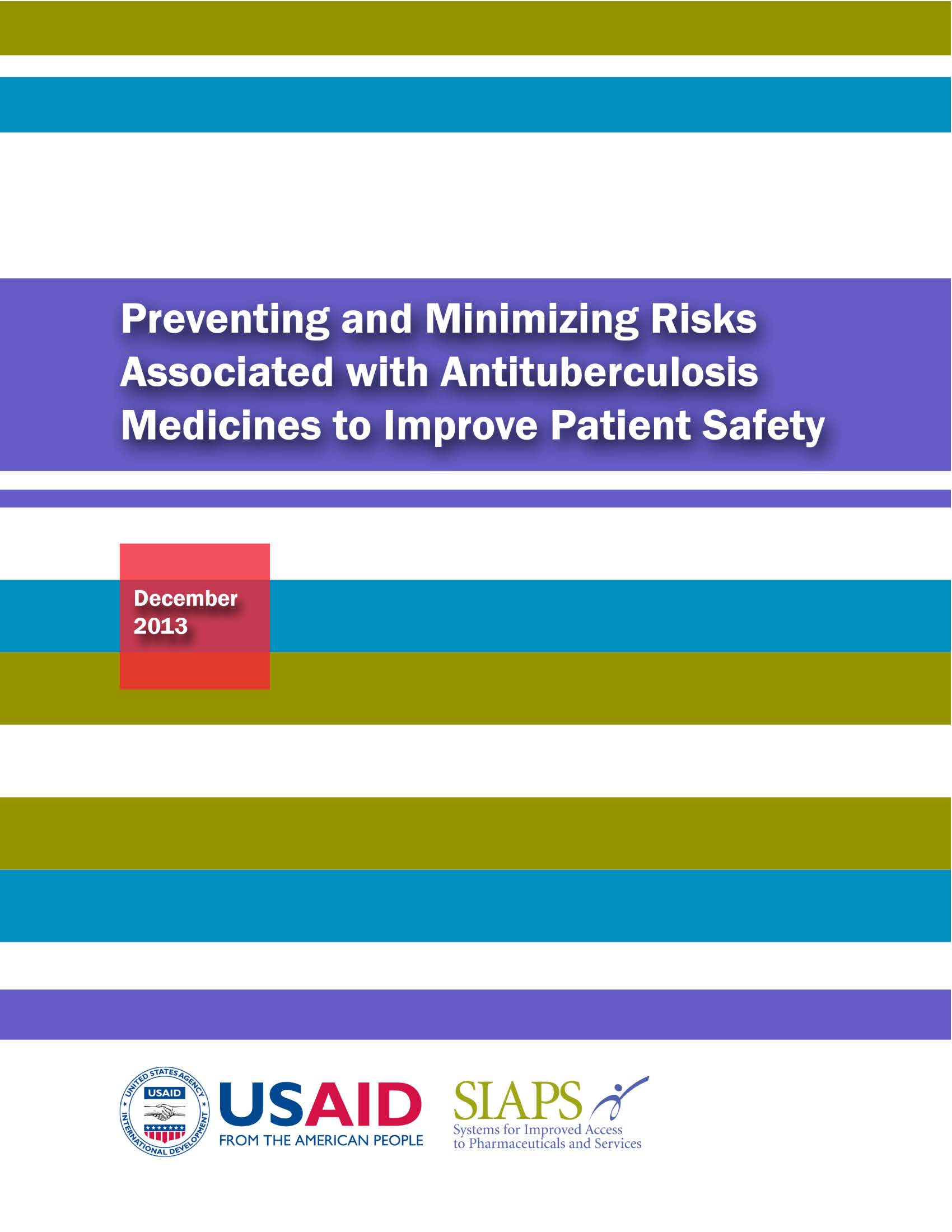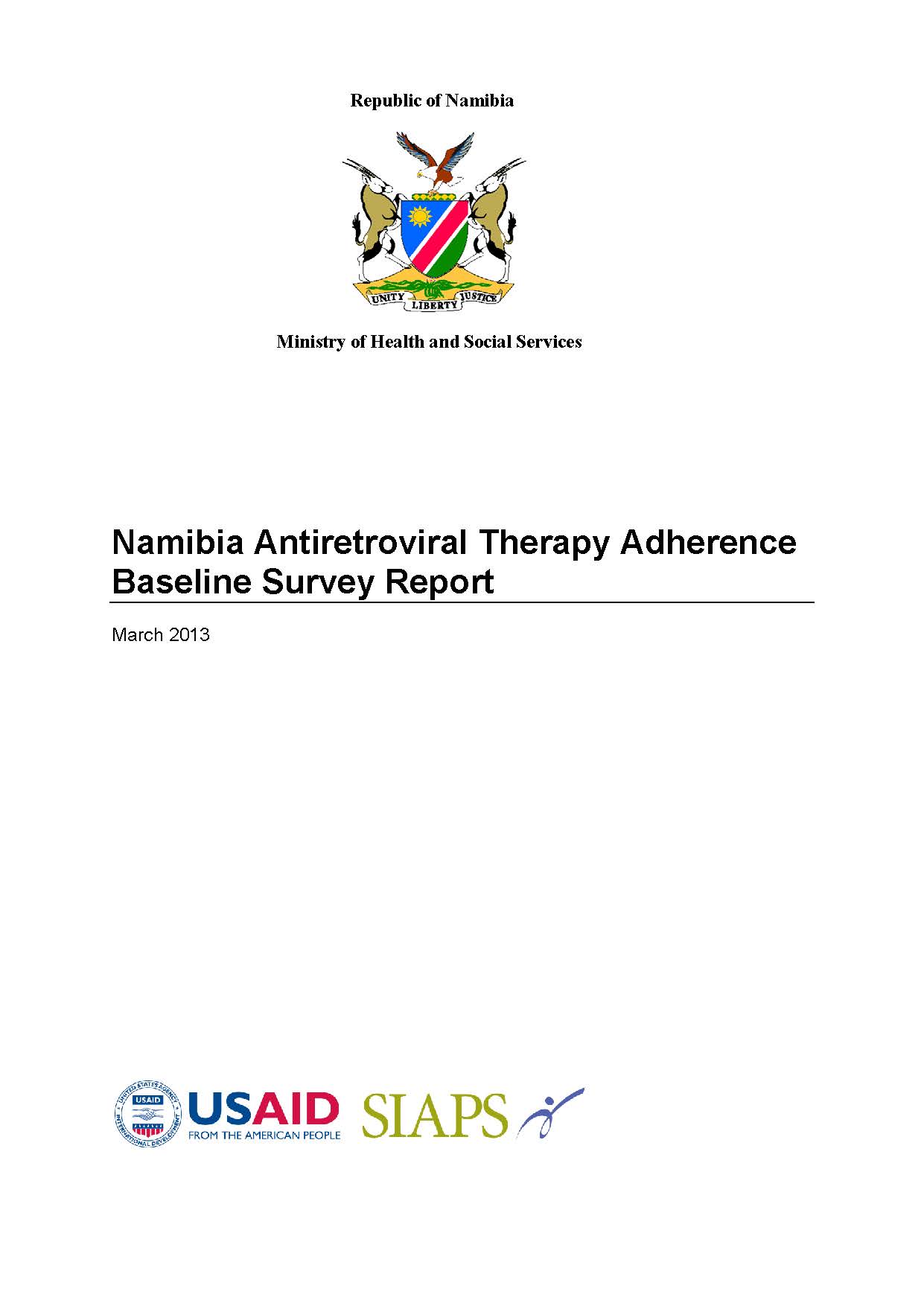The US Ambassador to Namibia, H.E. Thomas F. Daughton, launched CBART group ARV refills on June 1, 2017. These groups are implemented widely in Onandjokwe and other districts in northern Namibia, where the HIV burden is high. During the CBART group ARV refill initiative launch, the ambassador remarked “simple solutions = best solutions; bring the … Read more
A presentation by Mohan P. Joshi, Principal Technical Advisor and Lead for Pharmaceutical Services, SIAPS, at USAID in Arlington, VA on November 9 2017.
In Namibia, a preliminary review of EDT records suggests that children form a small proportion of the patients accessing ART in any given setting, nationally composing 8% of the patients on ART in the MoHSS facilities. Over the years, managing children has been complicated with formulations that have not been friendly for children, complicated regimens, and … Read more
A key element of successful tuberculosis (TB) control programs is adherence to treatment. Non-adherence results in increased length and severity of illness, death, disease transmission, and drug resistance. The purpose of this study was to estimate the morbidity and mortality impact and economic costs of non-adherence to TB medicines resulting from treatment interruption due to … Read more
One of the key elements of successful tuberculosis (TB) control programs is adherence to treatment, which is a cornerstone of most international and national policies and guidelines. Non-adherence results in increased length and severity of illness, death, disease transmission, and drug resistance. Treatment interruption is often due to patient-related factors—classed as loss to follow-up (LTFU)—but … Read more
One of the key elements of successful tuberculosis (TB) control programs is adherence to treatment, which is a cornerstone of most international and national policies and guidelines. Non-adherence results in increased length and severity of illness, death, disease transmission, and drug resistance. Treatment interruption is often due to patient-related factors—classed as loss to follow-up (LTFU)—but … Read more
With the shift from a disease landscape that focuses on the treatment of acute and short-term illnesses to one that faces an increasing burden of chronic diseases that may require life-long medicine use, the role of medicines in ensuring a healthy population is more important than ever. However,even when medicines are available, patients may not … Read more
A Clark, Adherence, Antimicrobial Resistance, Governence, guidance document, Human Resource Management, M Ludman, MP Joshi, pharmaceutical financing, pharmaceutical services, SIAPS
The purpose of this study is to determine if the current prescription practices adhere to the national therapeutic guidelines. Finding notable discrepancies between the prescription practices and the guidelines would explain unjustified expenses in ARV therapy and the stockout problems and overstocks that occasionally occur.
All medicines carry some risk of adverse events; although certain risks are identified when medicines are tested during clinical trials, others aren’t recognized until after the medicine is on the market and has been used in “real world” settings. Adverse events not only endanger the health of patients, but if not well managed, they may … Read more
The Namibia Antiretroviral Therapy (ART) Adherence and Improvement Initiative is a phased approach guiding the implementation of adherence activities in Namibia over the period May 2011 to April 2013. The approach consists of seven implementation phases of adherence activities. The Namibia ART Baseline Adherence Survey was the first step in this systematic approach, designed to provide … Read more
Adherence, antiretroviral, ART, ARVs, D Mabirizi, E Sagwa, F Tjituka, Health Facility, HIV/AIDS, J Gweshe, J Lukwago, Measurement, Multi Method Tool, Namibia, pharmaceutical services, Pill Count, rational medicine use, V Sumbi
